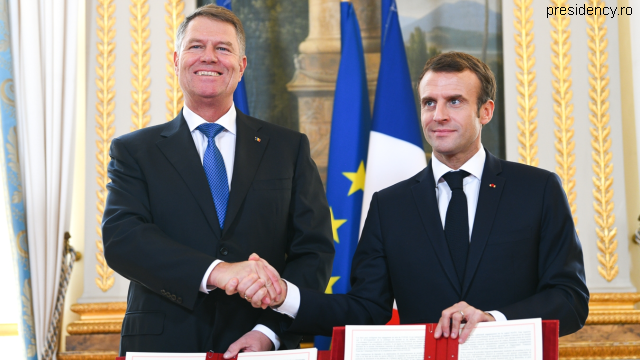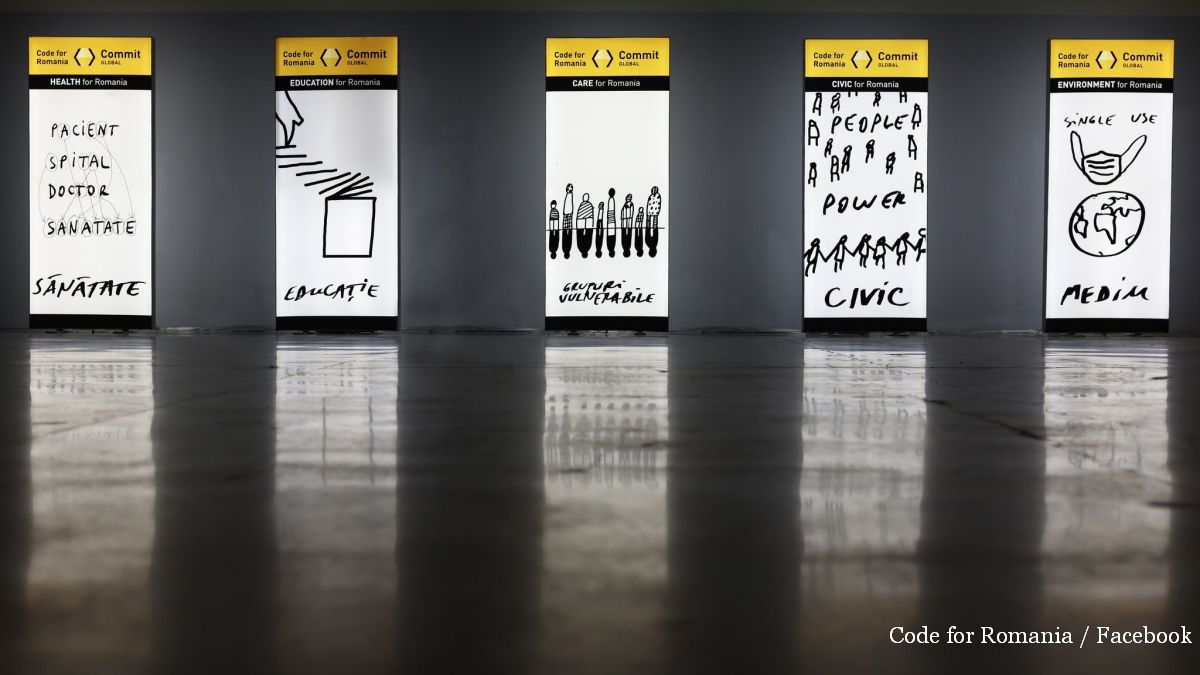A New Term for Macron
The Western world breathed a sigh of relief after the official results of the presidential elections in France were announced, confirming Emmanuel Macron's victory over his right wing opponent
Warning: Trying to access array offset on null in /home/web/rri.ro/public/wp-content/themes/rri/template-parts/content.php on line 53

Warning: Trying to access array offset on null in /home/web/rri.ro/public/wp-content/themes/rri/template-parts/content.php on line 98
Corina Cristea,
06.05.2022, 14:00
The Western world breathed a sigh of relief after the official results of the presidential elections in France were announced, confirming Emmanuel Macron’s victory over his right wing opponent. A victory on the side of Marine le Pen, seen as close to Vladimir Putin’s Russia, would have meant major turns in the country’s foreign policy. Her platform provided for, among other things, withdrawing France from NATO’s joint command, reviewing Paris’ relations with Washington, but also cooperation with Germany in terms of weaponry.
As the European press wrote, the main beneficiary of a crisis in the EU would be the Russian president. At the same time, Macron’s reelection means continuity for France in its main concerns, be they economic, European, or international. After a five year term marred by crises such as the anti-system Yellow Jacket protests, or the COVID-19 pandemic, Emmanuel Macron announced ambitious aims. He said that through projects and profound changes they can provide ambitious projects for everyone, encouraging creativity and innovation in their country, and turning France into a great ecological nation. He said that he was aware that many of his compatriots voted for him not because they were for his ideas, but because they were against those of the extreme right. He thanked them, and said he was aware that this vote puts an obligation on him for the following years.
In his first speech after the victory, Macron promised a revamped method of leading France, promising that no one would be left behind. What will be the challenges for Emmanuel Macron for the next 5 years? French people expect, first and foremost, measures to raise their purchasing power, affected by successive health crises, then the energy crisis, the war in Ukraine, and European sanctions on Russia, which have thrown a wrench into the entire European market, and even the world market, according to Radio Romania’s correspondent in Paris, Daniela Coman:
“Macron has a complex program of social measures in support of the poor, of single mothers, and other disadvantaged categories, as well as modernizing labor relations. He promised that in his second term, he would place ecology and fighting climate change at the center of the actions of the government. Education and healthcare will undergo profound reforms, and will get record investments, so that inequality in access to these services for citizens will vanish. Then, the president wants for France to gain industrial, energy, and agricultural independence, by creating one hundred percent French areas of activity. He promised he would build six new generation nuclear plants, and would initiate a reform in electricity prices at EU level. Then he would strengthen and modernize the army with investments and the latest technology, and double the size of the reserve, so that France would provide for its own independence in defense, and be able to hold its own in a high intensity war that could hit the European continent, and against hybrid and cyber threats.
These are ambitious objectives, for which Macron will need a new majority in Parliament, a government of the same color, but one that is hot hostile to him. The political struggle did not end on April 24, followed in June by two rounds of very important parliamentary elections. We asked foreign policy analyst Stefan Popescu if France would try to impose its voice more strongly in Europe. He talked to us about France’s European leadership and foreign policy. He said it remains to be seen to what extent France would be able to impose leadership in Europe, after the Bundestag has voted an extraordinary boost for defense, over 100 billion Euro.
France cannot keep up with such expenditure, believes Stefan Popescu, since France’s public debt is over 120% of GDP:
“This will upset a bit European balances on medium term, and there already is a process of reflection in France, I saw the discussions in the French press. Because the EU is a construction based on power balance, in which Germany is first violin economically. France compensates with its status of permanent member of the UN Security Council, and with its military forces, including conventional. Therefore, if Germany upsets this balance, I don’t know to what extent France would accept the role of junior partner for Germany. Macron has on his agenda a lot of European challenges, and I don’t known to what extent France would be able to rebuild its leadership in this European landscape. Because the basic idea is European strategic autonomy. As a result, Europe has to become a nexus of power, to create a third way between China and the US. I don’t know, though, to what extent these plans made by France will still be in step with the times, at least in the form it imagined them, after this US comeback to the continent, justified by the threats at the eastern borders of Europe.
For the time being, as president of the country that right now holds the EU’s rotating presidency, Emmanuel Macron is one of the most vocal leaders of the moment, in a geopolitical equation marked by Russia’s unpredictable actions. (CC)





























